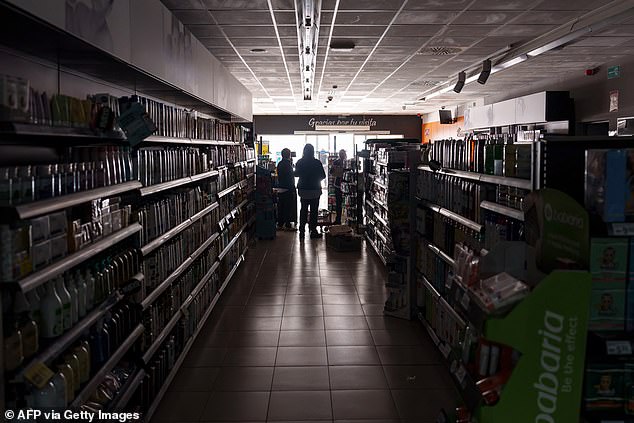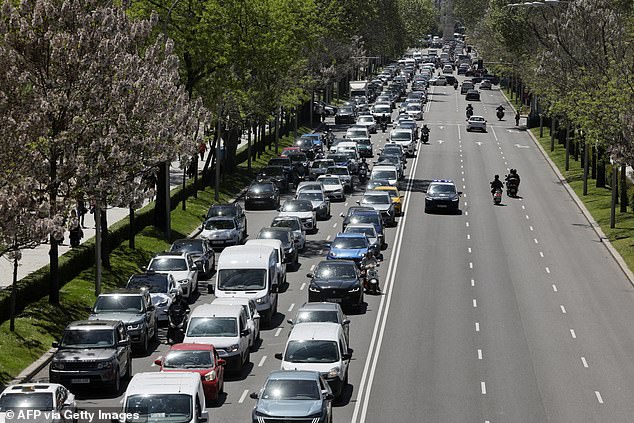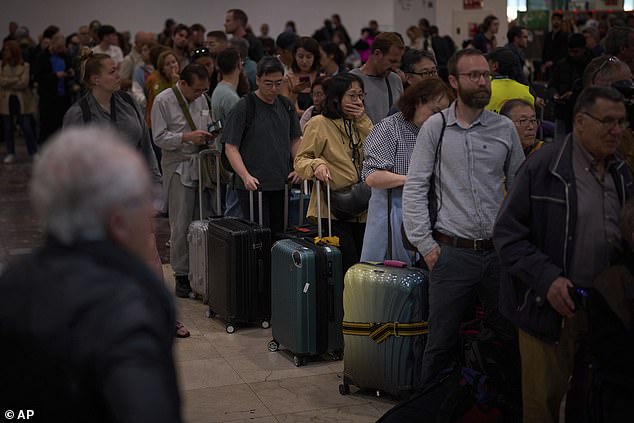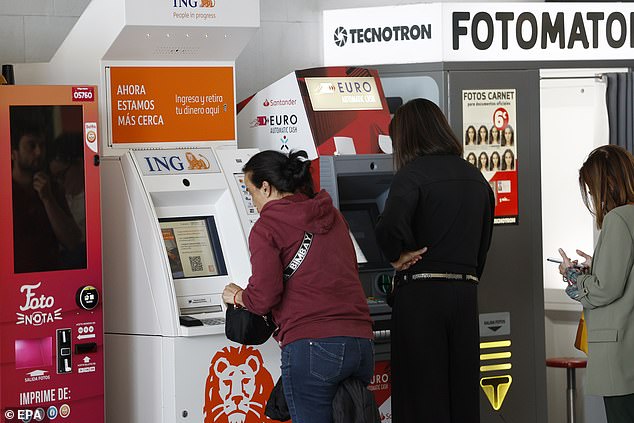All major mobile networks went down in Spain on Tuesday, just four weeks after the country was hit by a national power outage.
Movistar, Orange, Vodafone, Digimobil and O2 were all reported to have been affected.
Issues with network connectivity began around 5am this morning, according to Downdetector.
Emergency phone lines have been restored in Aragon, near the border with France, but problems remain elsewhere, Metro reports.
Spanish media noted networks contracted with Telefónica appeared to have been affected.
Sources from the company told El Correo that ‘network upgrade work’ has been carried out, affecting ‘specific services’ across the country.
The outage is said to be affecting both internet and telephone services.

People stand inside a supermarket without lights in Burgos on April 28, 2025, amid the outages

Millions were left without power as public transport and roads ground to a halt in April

The outages caused huge disruption across Spain and Portugal (Sants pictured on April 29)
Users in Barcelona told MailOnline that Vodafone services have been running without interruption.
Vodafone Spain provides services to more than 13.5 million mobile customers.
Spain was hit by a power outage at the end of last month, causing massive disruption to businesses, public transport and connectivity across the country.
Hundreds of flights were delayed and trains knocked offline, while petrol stations closed and traffic lights went down.
A British expat in Barcelona told MailOnline that there were huge queues for buses after the outage hit, with the metro knocked offline in the Catalan capital.
‘Traffic is crazy. The mopeds and motorbikes are heading down the cycle lanes. There are massive queues to catch the bus because without the metro there’s no way that anybody can get home from work,’ they said at the time.
‘There is power in some downstairs premises, so it’s not a total blackout. But internet up here doesn’t work at all. There’s also an eerie silence, apart from the cars. But everything is quiet.’
Spain and Portugal recovered their power supplies a day later.
Spain’s top criminal court, the Audiencia Nacional, said it was investigating whether the blackout was ‘an act of computer sabotage on critical infrastructure’ that could be classified as ‘a terrorism offence’.
The government set up a commission to investigate what triggered the incident, and refused to rule out any hypothesis.
Spain’s grid operator ruled out a cyber attack.
Local media soon began pointing to historic reports warning that the rapid integration of renewable energy sources could cause fluctuations in power levels, potentially leading to widespread blackouts.

A closed petrol station in Villabona on April 28, 2025, during the massive power cut

Several people get money out of several ATMs at the access of a subway station during a blackout hit Spain and Portugal in Madrid

A person walks down a downtown street during a power outage in Malaga during the outages
Just days before, Spain’s power grid ran entirely on renewable energy, including wind, solar and hydro power for the first time.
While sources of energy like wind and solar power are often fairly cheap and ‘secure’, reducing reliance on imports from abroad, their variability and storage issues pose more issues.
Kathryn Porter, an independent energy consultant, said: ‘The more you have wind and solar on the grid, the less stable the grid becomes and so the harder it is to manage faults.
‘I would say there’s a strong chance that the large amount of solar on the system created the conditions for this to be a widespread blackout and made it much worse.’












